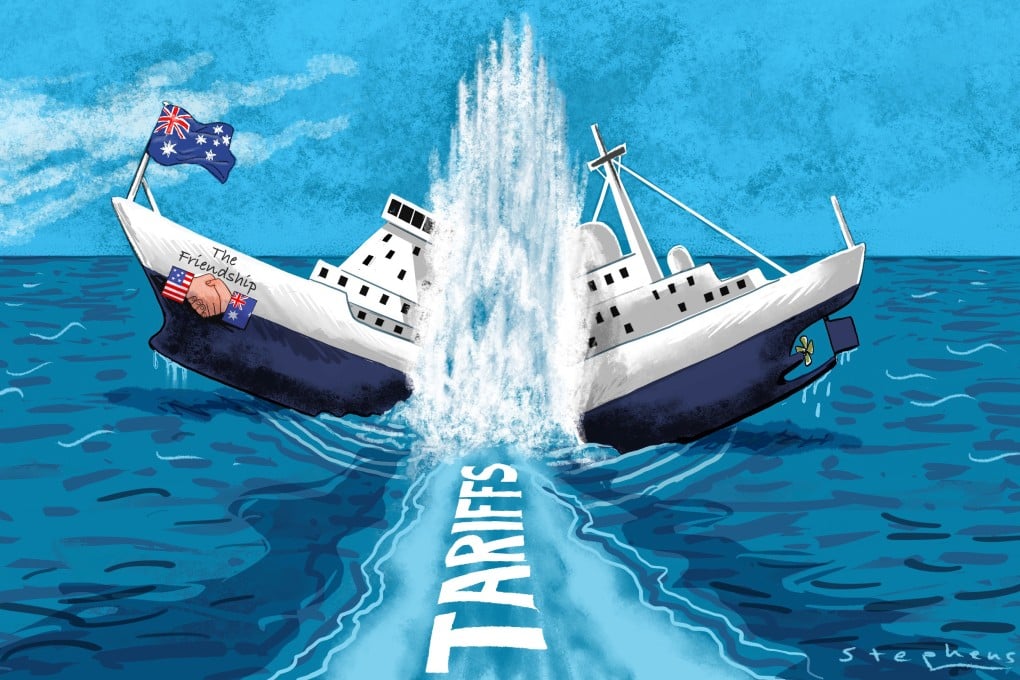Advertisement
Opinion | Trump tariff shock should jolt Australia into standing on its own
Breaking away from its long-time ally will be painful for Canberra, but Washington has already taken the first irreversible step
Reading Time:4 minutes
Why you can trust SCMP
22

On March 28, Prime Minister Anthony Albanese announced that Australia would head to the polls for a federal election in May. The long-awaited announcement set the stage for a closely contested race between his centre-left Labour Party and the conservative Liberal Party. But as the political battle lines were drawn, an unexpected development was unfolding offshore.
A Chinese research vessel was spotted off the south coast of Australia. Strategic analysts raised alarm, while tabloid media stoked fears of China’s “grave threat”. It appeared Australia was once again heading into an election season coloured by strong rhetoric over China’s rise.
But then everything changed. The real alarm was emanating from Washington rather than Beijing. The warning signs began with a shocking US policy reversal on Ukraine, signalling to Canberra that a very different America was now in charge under President Donald Trump. The real blow came when Washington imposed a wave of tariffs, first on Australian steel and aluminium, then on all Australian exports.
Advertisement
The fact that Australia – America’s most reliable ally in the region – was not spared from Trump’s “Liberation Day” tariffs despite running consistent bilateral trade deficits was a profound shock. Reports that US firms were urging the administration to further target Australian pharmaceutical and tech regulations only reinforced the message: whatever sentimental value Washington once placed on Canberra was fading fast.
For decades, Australia has been America’s most faithful ally. It stood by its side in every major conflict of the past century, welcoming US troops to its shores and working hand in glove on intelligence gathering. In 2005, it signed a free-trade agreement with Washington – a deal still criticised to this day as a surrender of national interests – which opened the floodgates to US exports and battered local industry.
Advertisement
The decision to unceremoniously torch its relationship with France and sign a deal of at least A$268 billion (US$170 billion) for Virginia-class US submarines stood testament to this mindset. The Aukus agreement was yet another example of Canberra’s efforts to anchor the United States to the region. If geography is destiny, then Australia’s attempt to bind the American subcontinent to the Indo-Pacific through Aukus was an act of strategic wishful thinking.
Advertisement
Select Voice
Select Speed
1.00x

